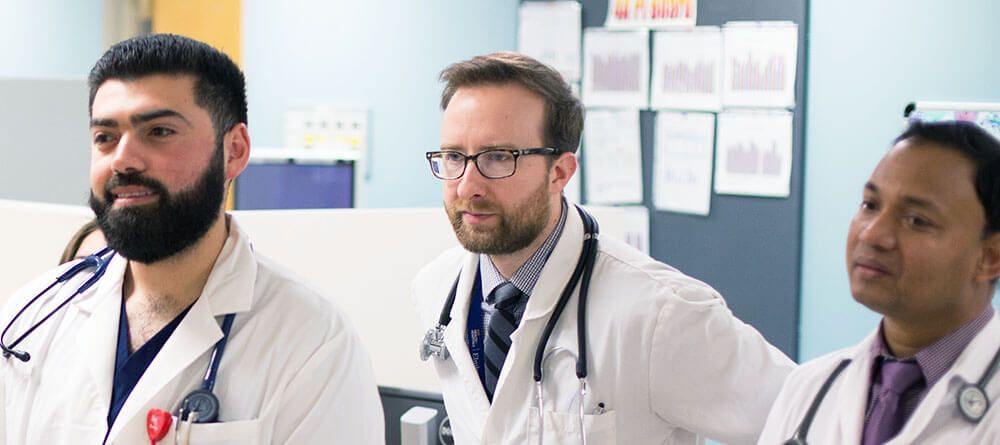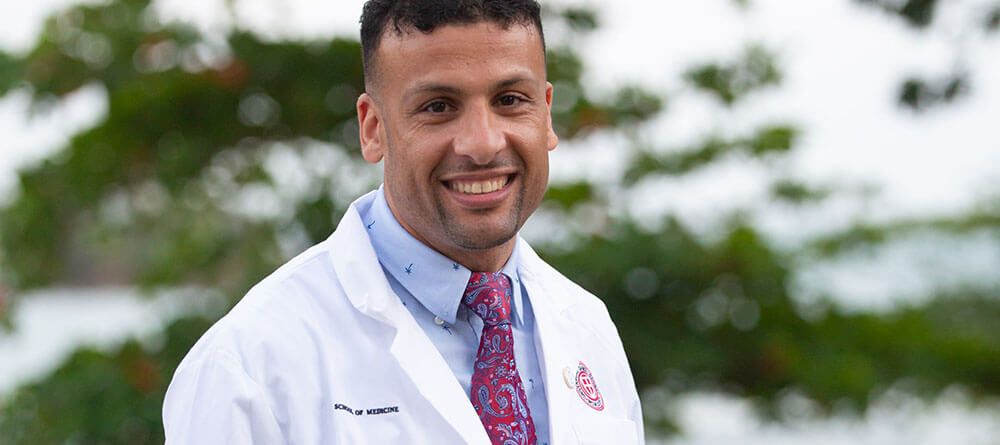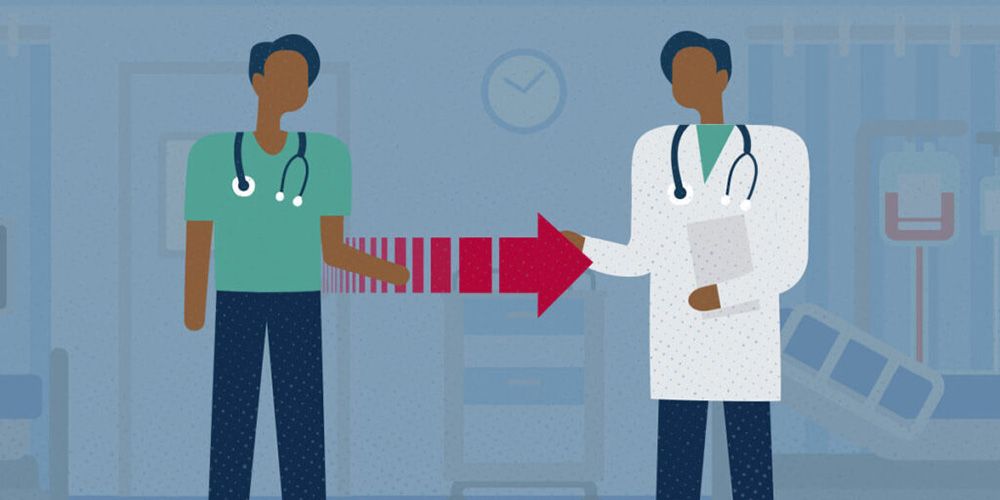Working with patients as a physician assistant can be incredibly rewarding. Some providers, however, are interested in advancing from their current role as a physician assistant (PA) to a Doctor of Medicine (MD). To transition from PA to MD, you’ll need to apply to medical schools, attend an MD program, and complete residency training.
7 Important steps to go from PA to MD
Can a PA become a doctor? As a former physician assistant and current resident physician, Dr. Christin Giordano* is proof this transition is possible. She has some firsthand insight that you might find helpful as you weigh whether to become a PA to MD career changer.
1. Evaluate your motivation
Dr. Giordano always planned to become a doctor but found herself questioning the career choice while gaining shadowing experience during college.
She ultimately decided to attend PA school and then began her career. But the itch to pursue an MD resurfaced when Dr. Giordano met a doctor who had the type of career and work-life balance she had always dreamed of. Working with this physician solidified her decision to pursue medical school.
“I would say that you should be 100 percent sure—actually be 120 percent sure—this is what you want to do with your life,” Dr. Giordano offers. It’s also worth acknowledging that some individuals have become physicians after roles in far different fields.
2. Enlist your employer’s support
Surrounding yourself with supportive friends, family, and colleagues is hugely beneficial when tackling the rigorous path of applying to medical school.
“I think having the support of your current employer, who is likely a physician, is extremely important.”
“I think having the support of your current employer, who is likely a physician, is extremely important,” Dr. Giordano says. “And having them write a letter of recommendation, if they can give a positive one, would really back up your application as well.”
3. Complete the necessary requirements
As you start the medical school application process, make sure you’re on track to address all requirements. Coursework deserves particular attention, so it’s a good idea to investigate class prerequisites—which many students do using Medical School Admission Requirements (MSAR) from the Association of American Medical Colleges—on a school-by-school basis.
“I had to take the second semester of organic chemistry, the second semester of physics and biochemistry, and I took an extra class in genetics,” Dr. Giordano says.
You also need to take the MCAT, write your personal statement, and secure letters of recommendation, which means time management is essential.
“I was going to work at 5 am, going to class in the middle of the day for an hour or two, coming back to work later in the day, and then studying for the MCAT at night,” Dr. Giordano recalls.
4. Submit applications, and complete interviews
Because most medical schools have rolling admissions, it’s best to submit applications as early as you can.
“Getting it in early gives you the opportunity to be seen earlier in the process and potentially be offered interviews before other people,” Dr. Giordano reminds.
By submitting your application early, you may be eligible for more scholarships, as well. Additionally, having PA experience might make programs take notice.
“I do think having the PA background is relatively unique,” Dr. Giordano says. She believes most medical schools consider this an advantage. That experience can also give you some talking points for your medical school interview, which can help you secure your acceptance.
5. Obtain your medical degree
Your first two years of medical school will be mostly classroom lectures and labs. You’ll then complete clinical rotations during your final two years to start getting comfortable working with patients.

You should expect to gain a deeper level of knowledge while working toward your MD, but existing physician assistant experience can be helpful.
“You have the advantage of knowing the medical terminology already,” Dr. Giordano explains. Having familiarity with a hospital system can make the transition to clinical rotations a little easier as well.You’ll also need to begin the licensing exam process as a medical student. You’ll need to take the first two portions of the United States Medical Licensing Examination (USMLE) over the course of your four years in school.
6. Complete residency and licensing requirements
You’ll go through the residency application process as you near the end of medical school. Both students and programs rank their choices after interviews are complete, and then a computer algorithm matches individuals to residency positions.
Residency is also when you’ll complete the final phase of the USMLE—and likely the appropriate board certification exam.
7. Start practicing as an MD

Once you’ve met licensing requirements in your state, you’ll have officially transitioned from physician assistant to doctor. Just note that you must keep up with continuing medical education requirements.
No matter which type of medical practice you choose, you’ll get to work with patients who rely on your medical expertise. Dr. Giordano believes having some additional time to mature and develop is helpful.
“I think having real-life experiences behind you is extremely important in connecting with your patients and their families,” she offers. “Working on developing those things, whether or not you take an unconventional path, is important.”
“It’s not an easy road, but it’s completely worth it.”
Clearly, seeking an MD can be very rewarding for the right physician assistant. “I have no regrets,” Dr. Giordano says. “It’s not an easy road, but it’s completely worth it.”
Realize your MD dreams
While going from PA to MD isn’t the most traditional path, Dr. Giordano and others have proven it’s possible. There are also physicians who’ve made even larger occupational leaps. For more inspiration on how to advance your professional life, read our article “6 SGU Students That Prove a Career Change to Medicine Is Possible.”
*Views are her own and do not express opinions of her employer.
**This article was originally published in April 2019. It has since been updated to reflect information relevant to 2022.


